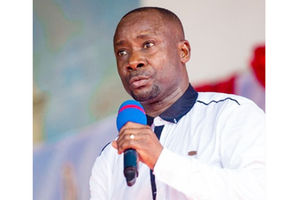VIEWPOINT : We’ve to give Tanganyika prominence
What you need to know:
- In the combination of our juvenile innocence and ignorance, however, the excitement lay, in addition to the lavish tea party hosted by local leaders at the trading square of my home village.
Surviving schoolmates of mine may confirm that, the green-yellow-black colour combination flag of newly independent Tanganyika was an item for which we have fond memories.
Being youngsters within the three-to-eleven-year-age bracket, glorified toddlers, if you like, we had been too young to comprehend the dynamics of our country switching from a colony to an independent nation.
We were excited, nonetheless, but excitement tinged with amazement and disbelief, that, a black person, Mwalimu Julius Nyerere, was succeeding a ‘mzungu’ as boss.
In the combination of our juvenile innocence and ignorance, however, the excitement lay, in addition to the lavish tea party hosted by local leaders at the trading square of my home village.
The party was followed by other aspects of fun like traditional dances, and a slow-motion bicycle contest, whose overall winner was the man who was the last to reach the destination, or close to doing so. All these paled into insignificance, however, viewed against the hoisting of the Tanganyikan flag. The ceremony was the first one that virtually all of us were witnessing for the first time.
It was preceded by band-led processions by pupils from the village’s two schools. All of them carried and waved miniature flags of Tanganyika, while those of the other (to which I belonged) had none. We grumbled in protest over our teachers not having been efficient or creative enough to get a consignment for us, to enable us wallow in the fun.
We were reduced to “beggars”, by borrowing the symbol of Uhuru from the privileged colleagues, to feel and wave it for some time. There was drama, too; a fat bully snatching one from a slim pupil and vanishing with it, and another chap chasing one that had been blown by the wind and converting it into personal property.
The emotional outcome was ecstatic. The flags subsequently became commonplace, and, as we grew older, what it represented (nationhood, sovereignty, self-rule) sank deeper.
But memories of the Uhuru Day fiesta endure. Come the Union in 1964, the consequent shelving of the Tanganyikan flag and its replacement with a Tanzanian one incorporating the ‘blue’ component to represent Zanzibar, many people welcomed the move, which fitted neatly into the much-orchestrated African unity ideal.
Lake Tanganyika, and the Tanganyika Law Society, remained as among the few major reminders of a country that took on Tanzania as its name within the combined Mainland-Isles context.
Some developments over the years have re-awakened the sleeping Tanganyika sentiments, especially as a by-product of elements within Zanzibar that project an anti-Mainland stance.
The stance has stirred passions amongst previously tolerant, but increasingly frustrated Mainlanders who feel that, the give-and-take between the two partners hasn’t been fair.
For one, the burying of Tanganyika as the name of the original (and bigger) partner is perceived as unduly on the higher side of the bargain. A spirited debate is on-going on the proposed three-tier system providing for the Union, Mainland and Zanzibar governments. The Tanganyikan factor should be given due weight, given its sensitivity.
IN PASSING…
In a recent television show, a leading American gun ownership lobbyist argued that, the problem lies, not with a gun, but an irresponsible owner who misuses it. He wondered why noise on a comparable scale, is not raised against deaths caused by drunk drivers. I feel there’s some merit in the sentiment.
Wilson Kaigarula is the Revise Editor, The Citizen




